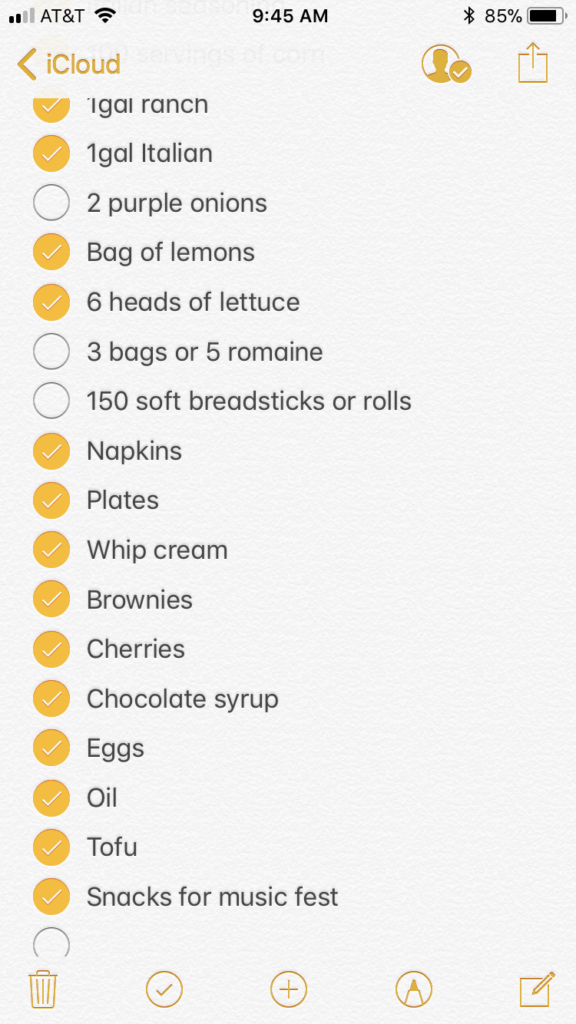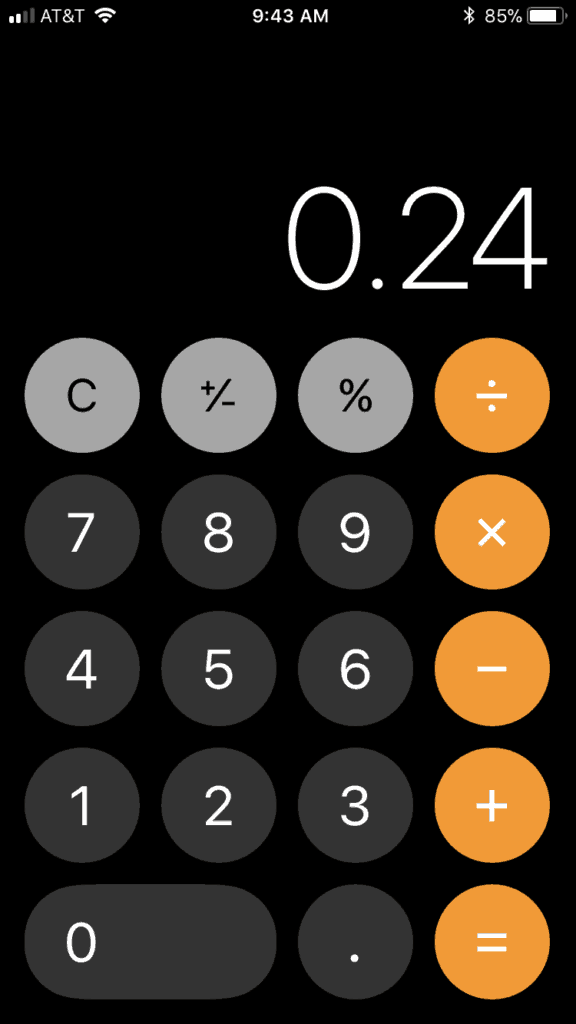This post may contain affiliate links. Please read my disclosure policy.
Last week I needed to buy some cereal. Actually I didn’t really need it – but it was on sale and I had some coupons which made it almost free. My husband rolls his eyes when he hears this, because I love to save money when I’m shopping, but we all enjoy the selection of items we have to choose from every day from the pantry. It hasn’t been so many years ago when we were newly married and both in college. We ate a lot of refried beans and corn tortillas because they were cheap. Over the years, our eating options have definitely become more interesting and varied as we’ve worked on ways to save money on our grocery budget each month.
Here are a few of the ideas that have helped us save money on our grocery budget over the years. My goal now is to see how little I can spend each week. Some weeks are better than others, but we eat more than beans most of the time!
- Plan a menu and then make a shopping list while checking your current stock on hand. When you get to the store, stick to the list! Staying with your list will help you not to be tempted to make impulse purchases that you don’t really need. Stores pay people to make the displays look appealing and appetizing to get the consumers to want to buy the item. You know what you need better than the store does, so make sure you make the choice. You will probably be eating more healthfully with a menu instead of frozen pizza and restaurant food for lack of a better plan.

- Don’t shop hungry. This probably goes without saying, but if you’re hungry when you grocery shop, you are more likely to buy all sorts of things you may or may not need. Often these items aren’t as healthy since you’re hungry and looking for something to eat quickly like a candy bar, soda, or chips.
- Shop as quickly as you can – the longer you are in a store browsing or looking, the more likely you are to purchase more things that you may not need.
- Look high and low. Most of the higher priced items are on shelves that are eye level to the average shopper. Make sure to look higher and lower on the shelves to compare prices.
- Plan ahead – if you know you have a special meal (like Thanksgiving or Christmas or a birthday) plan out what you’ll need and spread those purchases over a few weeks so the big grocery bill doesn’t hit all at once. Stores usually start running sales on items used for baking before Thanksgiving. These things usually keep very well and may be items you use all year round.
- Shop with cash. I know, this may sound old fashioned, but it does make you keep better track of what you are buying and how much it costs. Determine that when the money’s gone – the grocery trip is over! Ever since we got married, we’ve had a set amount that we allocated for groceries and sundries (food, diapers, cleaning supplies, toilet paper, cat food, etc.) At the beginning of the month, I withdraw that amount from our checking account and when it’s gone, for the month, my grocery shopping is done too.
- Forget brand loyalty. A couple of years ago there was a recall on a certain brand of peanut butter. Along with that recall came a recall for many generic store brands as well since they were actually made by the same company. Store brand items are not necessarily inferior and often times are the exact same product with a different label and a cheaper price.
- Watch the weekly grocery store ads and sales. Stock up when things that you use often are on sale. Clip coupons. There are many places where you can find coupons these days. The Sunday paper has the most readily available coupons every week. There are also many online websites that have printable (internet) coupons that you can print on your computer and use at the store. Many manufacturer websites also have coupons that you can print or newsletters you can sign up for that will deliver coupons to your inbox. My personal general rule of thumb is: I will use coupons only for things that I normally would use unless it is free – then I’ll buy it anyway and try the product or give it to someone else. Manufacturers use coupons as a form of advertising so they are also trying to get you to buy their product. So be careful not to just buy things because you have coupons.
- Develop a price book or price list. I have a loose leaf notebook that I’ve listed the items I frequently purchase and the prices I pay for them at different stores. This way, I can look through the ads and refer to my notebook to make sure that this is truly a good sale and doesn’t just look like a good sale by the advertising. I keep track of the item, price and size and then figure out the cost per ounce, pound or count. It’s all in my book and I don’t have to remember all the best prices and sizes.
- Shop with your eyes open and your calculator out at warehouse club stores. Club stores can have some great bargains but can also be difficult to compare the prices since often the sizes are not the same as the grocery store sized items. Sometimes things are packaged in such a large quantity that you couldn’t possibly eat it all before it goes bad. So if you’re paying for a large quantity and half gets thrown away, it makes it more expensive in the long run. For me, it’s cheaper per pound to buy shredded cheese at our club store and then freeze it in smaller bags than to buy the same amount of cheese at the grocery store. I also buy my laundry soap and yeast. For other items I refer to my price book to decide it the item is a good price or way more expensive than some other store.
Use your calculator to compare prices by the ounce, pound or per item so you get an accurate comparison.
- Be flexible. If you’ve made up your menu and your grocery list but get to the store and they are all out of a main item for your menu but have something else on a super sale, stock up and change your menu!
- Price match! Often grocery stores will match a competitor’s ad prices. Many times the larger store will match the ads and this can save you time and money since you can buy everything at one place and you’re more likely to find the item in stock if it’s on a really great sale. Check your local stores for their price matching policy. Some stores will even take coupons from a competitor store!
- If you see an awesome sale – by all means stock up! A couple of years ago I found a great sale on spaghetti sauce. We eat spaghetti often and I use the sauce in lasagna, ravioli, pizza and a few other dishes. I was able to get the sauce (after my coupons of course) for about $.10 a jar. I bought over 40 jars of sauce! It was a huge bargain and we just finished the last jar recently. Most things on the shelf at the store have expiration dates or “best if used by” dates. You do need to watch that on perishable things, but for things that will keep like canned goods, stock up as much as you can. Things do tend to go on sale in cycles so if you know that fresh cranberries are always on sale in November, buy some extras and put them in the freezer. You may not be able to even find them in January!
- Use your freezer. When you do find that fantastic sale, be sure to get the food put away so that it will be good and fresh to eat in a few months if need be. When I find a sale on butter or margarine I always freeze the extras. Sour cream and cottage cheese can be frozen as well although they don’t have the same consistency when thawed. They are great for casseroles though. We also freeze skim milk and soymilk if we have extra. Remove an inch or so from the jug before freezing as it will sometimes split the carton as it freezes. Thaw overnight in the sink or for a couple of days in the fridge. Shake well and you’ll be back in business.
- Check out Amazon Fresh and sign up for their free month trial, or Amazon Prime pantry boxes and sign up for a free trial of Amazon Prime. Use your price book to check for great deals and coupons on Amazon and save a trip to the store! Sometimes the best savings on groceries is time and gas!
- Share! Once you have all your bargains and have saved money on your grocery bill, be sure to share with someone else. That’s where the true joy comes from. Make an extra casserole and share it with a new mom, invite a family for lunch after church, donate some extra items to the women’s shelter or food pantry. Knowing that you can afford to share is a true blessing!
I’d love to hear about your best tips for saving money on groceries. Comment below with your tips!



